
Midterms don’t have the cachet of presidential years, but 2014 looks to be an important election year, particularly for San Diego and the LGBT community.
Mayor of San Diego. Both candidates have history on their side. Special elections typically bring out a more conservative electorate, which would help Councilmember Kevin Faulconer. Councilmember David Alvarez benefits from San Diego’s tradition of opting against the top vote-getter from the primary. Given the already small pool of undecided voters, expect this to be an increasingly ugly, get out the base election. An Alvarez victory would suggest the progressive coalition that elected Filner and Obama can be tapped outside a presidential year, a bad omen for local Republicans.
San Diego Unified School District. Kevin Beiser became chairman this December, but he was elected to the board in 2010, meaning he’s up in 2014. His efforts have nurtured a politically broad base of support, but that doesn’t mean he will walk into a second term. His re-election is well worth a trip down the ballot, as it could solidify gains made against bullying and ease implementation of rules protecting transgender students.
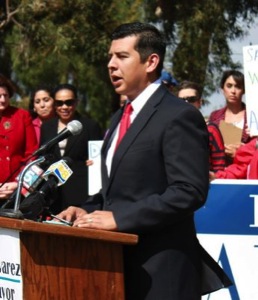
San Diego City. Incumbents rarely lose Council elections, but the Democrats are defending safer turf in 2014. Should Alvarez lose his bid for mayor, expect him to win back his District 8 Council seat handily. Should Alvarez become mayor, expect one of his supporters, or one of his Democratic opponents from 2010, to take the seat. Given the partisan slant of District 4, Councilmember Myrtle Cole seems a safe bet to win a full term.

The safety of those seats is allowing Democrats to play offense in places like District 2, where Kevin Faulconer is termed out in 2014. Redistricting moved District 6 Councilmember Lorie Zapf into District 2, where she will run as a quasi-incumbent. Democrats have quickly coalesced behind former federal prosecutor Sarah Boot, who could give Zapf a tough race. Zapf’s move leaves District 6 up for grabs. Carol Kim has the County Democratic Party endorsement, Chris Cate has the Republican endorsement, and Mitz Lee is working to carve out a niche in the middle. The somewhat unusual pre-primary party endorsements reflect the stakes: if Democrats pick off one of these seats, they will be able to override vetos by a Mayor Faulconer or Alvarez.
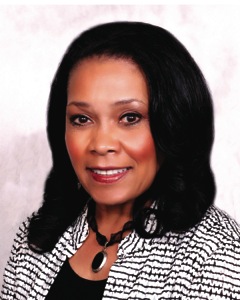
The June 3 primary ballot will also decide the fate of the Barrio Logan Community Plan. At the moment, this looks like a turnout wash, with businesses having more money for ads, but residents having more voters and boots on the ground. If the unions who have voiced support come in with money, the needle moves toward a “yes” on the plan.

San Diego County Supervisor. Supervisors Bill Horn and Ron Roberts are both running in their last election before term limits kick in. For many years, supervisorial races were a formality, with incumbents cruising to victory in the primaries. This year could be different. Horn’s District 5 leans conservative, but he has drawn a high profile challenger in Oceanside Mayor Jim Wood. Roberts doesn’t have a major challenger yet, but the Democratic slant of District 4 puts him at risk, as Stephen Whitburn showed by forcing a run-off and taking 43 percent during the Republican wave of 2010.
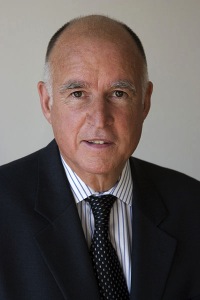
California State Legislature. Senators from even-numbered districts and all assemblymembers will be on the 2014 ballot. These races are still developing, but most local seats seem safe for their incumbents or the party of termed-out incumbents. In most jeopardy is an Assembly glass ceiling, as Assembly Majority Leader Toni Atkins appears increasingly likely to become the first openly lesbian Assembly speaker. Both chambers will almost certainly stay in Democratic control, but their supermajority could be at risk with a midterm electorate.
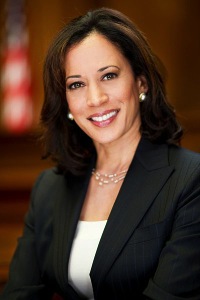
State of California. Gov. “Moon Beam” has given way to Gov. “Laser Beam”, as in focus on the economy. California’s financial rebound has Gov. Jerry Brown cruising to re-election (and not ruling out a 2016 presidential run!). Ditto for Attorney General Kamala Harris. Barring a surprise, the biggest worry for state Democrats is that complacency from marquee non-races could adversely impact down ballot elections.
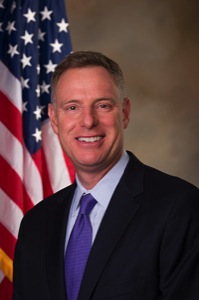
AB1266, the School Success and Opportunity Act, goes into effect Jan. 1. Early sampling suggests that opponents may not have gathered enough legitimate signatures to send the law to the ballot. Jan. 8, we’ll know if improvements for California’s transgender youth will be permanent, or will require a “No on Prop Something” vote.
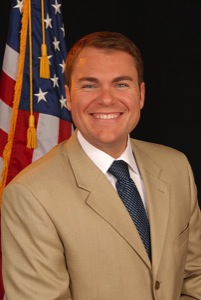
U.S. House of Representatives. Representatives Issa, Hunter, Davis, and Vargas look safe, leaving all the local action in CA-52, where first term incumbent Democrat Scott Peters faces former City Councilmember and mayoral candidate Carl DeMaio. Peters’ moderate record, incumbency, and deep pockets give him an early edge, but a near even split between Democrat, Republican and decline to state voters makes this among the swingiest of swing districts.

The race could be a national bell-weather, with a DeMaio win predicting greater Democratic losses in the House. Potentially more intriguing is the LGBT side-plot: How will the Victory Fund, the Human Rights Campaign and local LGBT voters line up when a conservative gay candidate takes on a more progressive staunch ally?
U.S. Senate. Neither of California’s senators are running, but for the third consecutive election, partisan control of the Senate is considered up for grabs. Democrats start with a 55-45 majority, but are defending 20 seats to the Republicans 13 (plus a safe special election for each party). 10 Democratic seats are considered at least competitive, with 7 in states won by Mitt Romney in 2012. In contrast, only 2 Republicans seats are vulnerable.
Despite similar numeric advantages, poor candidates and bizarrely out-of-touch comments about rape cost the Republicans in 2010 and 2012. With Georgia primary candidates suggesting that evolution is a lie “straight from the pit of hell” and that Rep. Todd Akin was “partly right” about rape victims being unlikely to get pregnant, Republicans may be setting themselves to come up short again in 2014.
Same-Sex Marriage. Oregonians could be voting on marriage equality in 2014, but most of the action will be in Federal District and Circuit courts. Cases like those in Ohio and Utah could lead to a variety of advances limited in scope or geography. Other than deciding whether to stay those decisions pending appeals, the Supreme Court is likely out of the picture until at least 2015.
Federal Legislation. Progressive causes like ENDA and Comprehensive Immigration Reform may well remain stalled if the Democrats fail to win the House; however, many point to the hiring of executive order expert John Podesta as a sign that President Obama may ready to act on his own in 2014.











